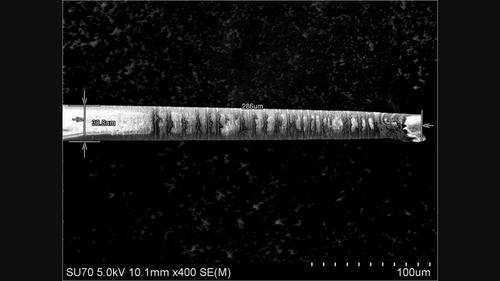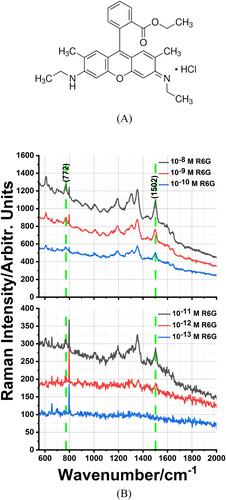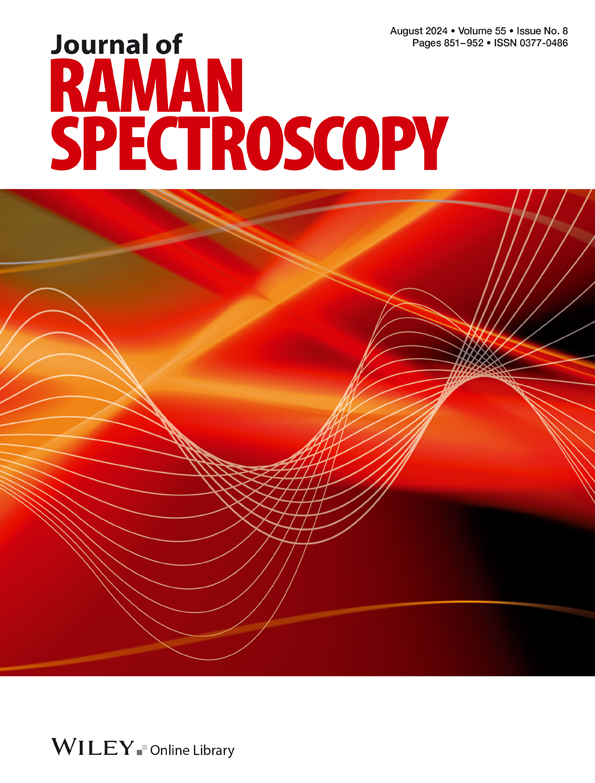作为表面增强拉曼光谱 (SERS) 检测痕量化学品工具的三维质子基底
IF 2.4
3区 化学
Q2 SPECTROSCOPY
引用次数: 0
摘要
利用光学镊子将金纳米棒 (GNR) 固定在锥形光纤表面,开发出了一种三维 (3D) 等离子基底。为了确定基底的功效,研究了两种有毒化学物质罗丹明 6G (R6G) 和水晶紫 (CV) 的拉曼光谱。采用 "浸渍和干燥 "方法沿锥形纤维长度吸附化学物质。我们报告了所制造基底的特性和独特功能。本文章由计算机程序翻译,如有差异,请以英文原文为准。


Three-dimensional plasmonic substrate as surface-enhanced Raman spectroscopy (SERS) tool for the detection of trace chemicals
A three-dimensional (3D) plasmonic substrate was developed using gold nanorods (GNRs) onto a tapered fiber surface using optical tweezing. To determine the efficacy of the substrate, Raman spectra of two toxic chemicals Rhodamine 6G (R6G) and Crystal Violet (CV) were studied. The “dip and dry” method was used to adsorb the chemicals along the tapered fiber length. The minimum concentration detected for CV and R6G was 10−12 M. We have reported the characteristics and unique features of the manufactured substrate.
求助全文
通过发布文献求助,成功后即可免费获取论文全文。
去求助
来源期刊
CiteScore
5.40
自引率
8.00%
发文量
185
审稿时长
3.0 months
期刊介绍:
The Journal of Raman Spectroscopy is an international journal dedicated to the publication of original research at the cutting edge of all areas of science and technology related to Raman spectroscopy. The journal seeks to be the central forum for documenting the evolution of the broadly-defined field of Raman spectroscopy that includes an increasing number of rapidly developing techniques and an ever-widening array of interdisciplinary applications.
Such topics include time-resolved, coherent and non-linear Raman spectroscopies, nanostructure-based surface-enhanced and tip-enhanced Raman spectroscopies of molecules, resonance Raman to investigate the structure-function relationships and dynamics of biological molecules, linear and nonlinear Raman imaging and microscopy, biomedical applications of Raman, theoretical formalism and advances in quantum computational methodology of all forms of Raman scattering, Raman spectroscopy in archaeology and art, advances in remote Raman sensing and industrial applications, and Raman optical activity of all classes of chiral molecules.

 求助内容:
求助内容: 应助结果提醒方式:
应助结果提醒方式:


